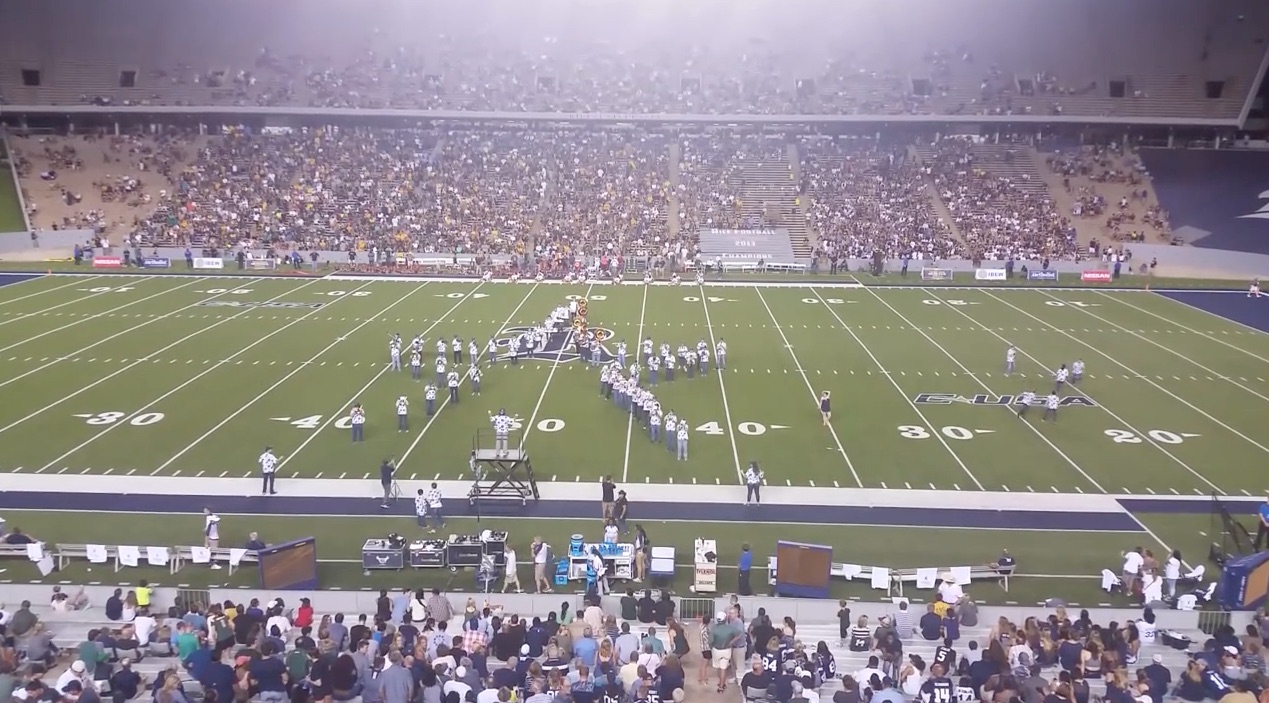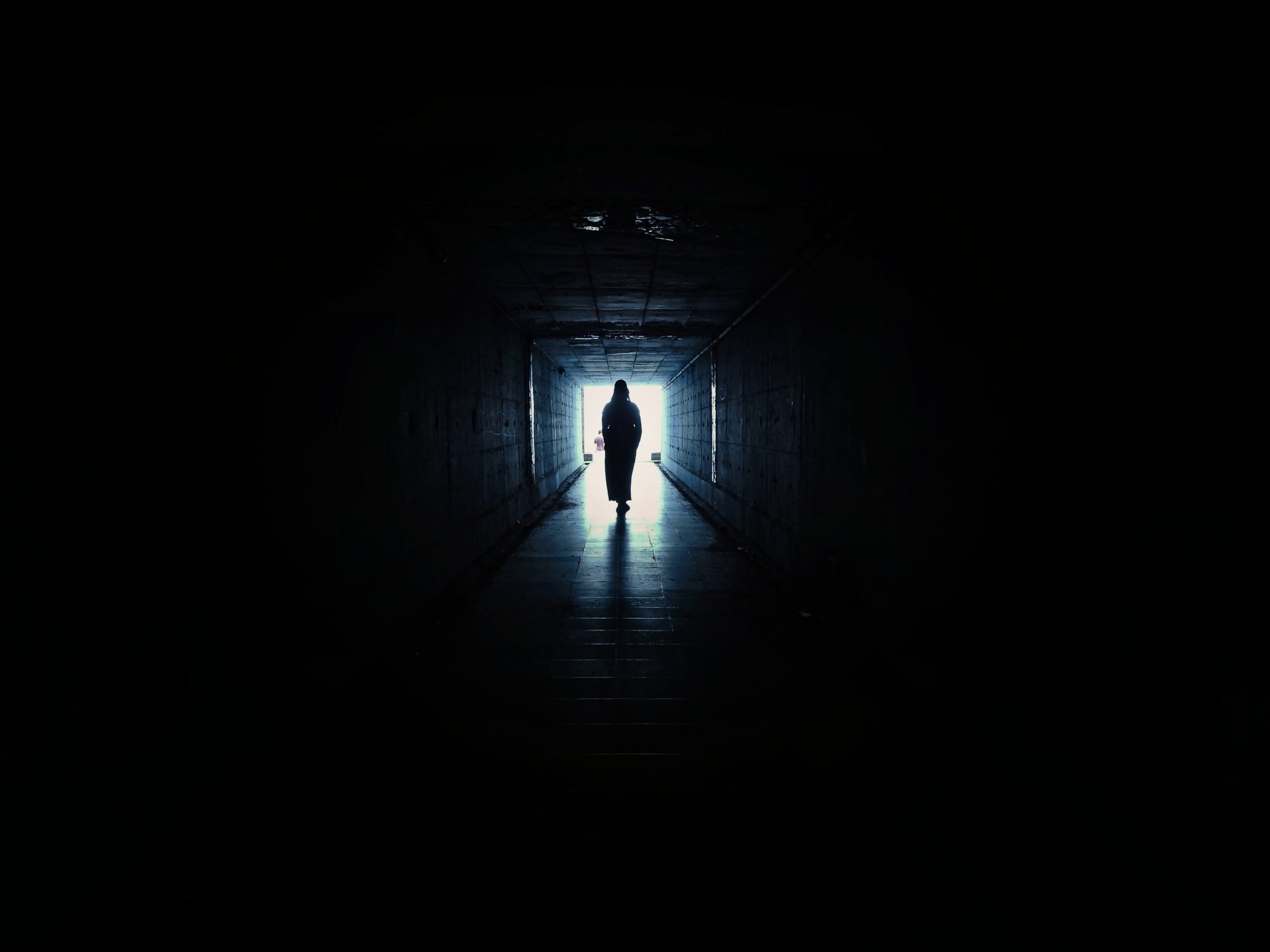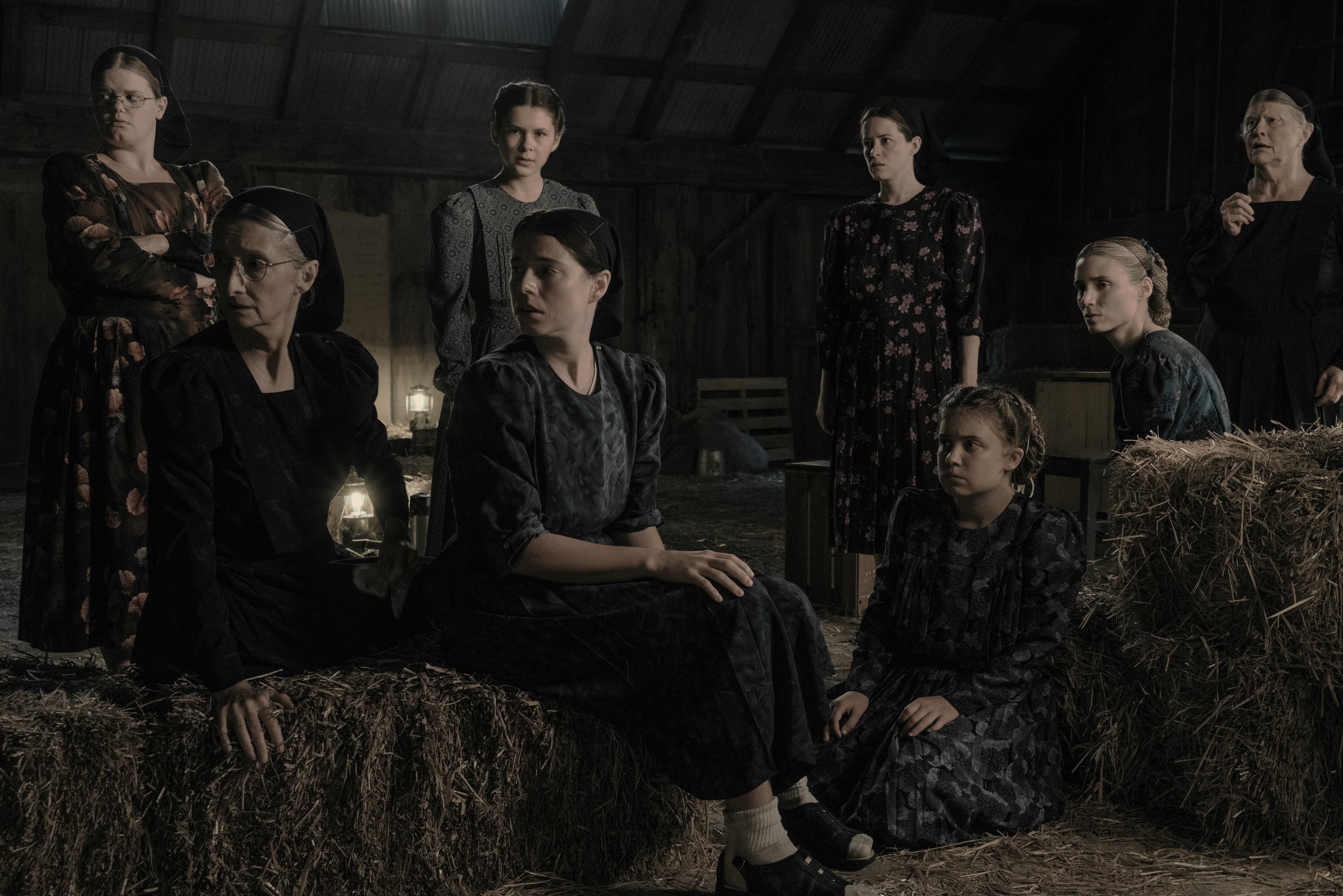
Baylor Fans Must Face the Music After Rice Band’s Halftime Show
A former Owl band member's advice for outraged Baylor fans: Don't like being called out on rape culture? Don't support it.
Friday night, the Rice University Marching Owl Band goaded Baylor University fans by referencing the school’s recent rape scandal during the scatter band–style halftime show. (Scatter, or sometimes “scramble” bands, don’t march, but rather dash from point to point. Like this.)
The Owl band sent a pointed message to the Baylor Bears: Hey, this is still on people’s minds. The performance came just minutes after, according to several fans, some Baylor loyals gave a standing ovation to Art Briles, the former Bayor coach who has been fired over his failure to respond to reports of sexual assault involving his players. Briles attended the first half of the game in the stands.
Friday’s show, called “The Title of This Show Is ‘9,’” took on a Sesame Street–inspired register with Fozzie Bear delivering sheathed but unmistakable references to the scandal. The “number of the day” was 9, spelled on the field in Roman numerals to signal that the show was really talking about Title IX. The “quote of the day” — “I did not investigate that coach,” spoken by the announcer — drew a parallel between now-former Baylor president Ken Starr’s investigation of Bill Clinton in the ‘90s and the lack of investigation into his own school, while the band made a star shape on the field.
In the aftermath of the performance, Baylor fans have repeatedly called the performance “classless” and “disgusting” on Twitter and in comments sections as the story and the image of the “IX” spread through social media. Not all Baylor supporters were shocked; some on a Baylor message board pointed out that they should have seen this coming and had better grow a thicker skin. However, the backlash was bad enough for Rice University to issue an official statement that some saw as a regretful admission of error and others saw as the administration both apologizing for the offense and standing by the band. Rice Dean of Undergraduates John Hutchinson told the Observer that although many interpreted the official statement as apologizing, “Expressly, it did not.”
In a phone interview Monday, Rice’s Director of Bands Chuck Throckmorton said that the band members who wrote the script decided to address the scandal because “it was too important a subject to be quiet about.”
The Owl band has a history of not being quiet. The outraged response was one that the band, whose performances have often targeted errant authority figures, has gotten used to over the years. In 2011, there were gasps and guffaws when the band spelled out “$EC” at Darrell K. Royal Memorial Stadium, the Longhorns’ home turf. In 2007, there were shock waves when a hell-themed show condemned an unpopular former Rice coach to a place beyond the bowels of the inferno, namely Tulsa.
During my time in the band as a wind player and as coordinator of the script-writing team in 2009, we came to anticipate angry letters over everything from the deliberate jabs to the innocent choices. One person was upset because one of the props in a show, a jumbo cutout of the state of Texas, was painted pink. But despite the Owl band’s reputation for irreverence, the ethos is not to cause anger, but to comment on and play with figures and incidents that have already drawn plenty of attention without the band’s help.
After the performance, the Houston Chronicle and KPRC Houston both interpreted the performance as mockery, and a tweet from a Houston sports blogger also took off online: “Holy crap Rice’s halftime show is just the Rice band making fun of Baylor for the program’s sexual assault scandal,” the blogger wrote, later calling the Rice band “total savages.” SB Nation’s Underdog Dynasty described the show as “satire,” and a commentator at the Star-Telegram called it a well-deserved skewering, a perspective echoed by many of the band’s supporters.
The response from many others in the audience — like those who stood to applaud Briles — suggests that college football culture remains resistant to talking about its failures to protect victims of sexual violence.
And the scandal was not the show’s only subject. There were also references to nanotechnology and neurobiology, an unnecessary insult about people educated in Waco not being able to spell, and an unscripted admonishment of audience members who had been pointing lasers at the field. The “IX” segment was, on its face, about the number of Supreme Court justices. Far from being a sick burn solely dedicated to roasting the Baylor administration and football program, the show was remarkably restrained on the Title IX front.
Yet marching formations and snarky remarks, coming from performers who have used much stronger firepower in the past, were enough to cause fans to lash out not at those responsible for Baylor’s failures, but at those who dare mention it even exists. Clearly, the cultural change needed to prevent this type of failure of responsibility from happening again has only begun.
It is true that many Bears fans have not been indignant apologists. But the response from many others in the audience — like those who stood to applaud Briles — suggests that college football culture remains resistant to talking about its failures to protect victims of sexual violence. For those in the business of upending poisonous systems of power, the claim that there is a proper place and time for bringing up rape, which always seems to be nowhere and never, shows that there’s still a long way to go.
The naming of a wrongdoing is never worse than the wrongdoing itself. Not even when the indictment targets an object of the kind of unbridled loyalty we reserve for our favorite sports franchises. But it’s that willfully blind mindset that has led to Baylor’s situation and many, many others like it. Sexual violence is an outrage. If we want to end rape culture on college campuses, and in society at large, we can’t treat the act of acknowledging it as outrageous, too.


